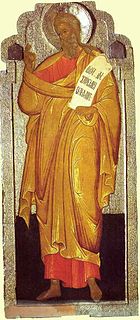 W
WThis is a list of people named after Abraham, the Biblical patriarch ; the father of the Abrahamic Religions, Judaism, Christianity and Islam:
 W
WAlexander is a male given name. The most prominent bearer of the name is Alexander the Great, the king of the Ancient Greek kingdom of Macedonia who created one of the largest empires in ancient history.
 W
WArnold is a masculine German, Dutch, Polish, and English given name. It is composed of the Germanic elements arn "eagle" and wald "power, brightness". The name is first recorded in Francia from about the 7th century, at first often conflated with the name Arnulf, as in the name of bishop Arnulf of Metz, also recorded as Arnoald. Arnulf appears to be the older name, and German (Frankish) Arnold may have originally arisen in c. the 7th century as a corruption of Arnulf, possibly by conflation of similar names such as Hari-wald, Arn-hald, etc.
 W
WArthur is a very common Welsh masculine given name. Its etymology is disputed, but its popularity derives from it being the name of the legendary hero King Arthur.
 W
WThe name Basil comes from the male Greek name Vassilios, which first appeared during the Hellenistic period. It is derived from "basileus", a Greek word of pre-Hellenic origin meaning "king", "emperor" or "tzar", from which words such as basilica and basilisk as well as the eponymous herb basil derive, and the name of the Italian region Basilicata, which had been long under the rule of the Byzantine Emperor.
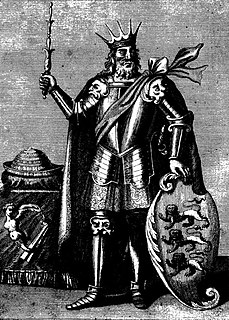 W
WBrian is a male given name of Irish and Breton origin, as well as a surname of Occitan origin. It is common in the English-speaking world.
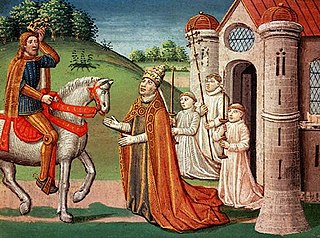 W
WCharles is a masculine given name predominantly found in English and French speaking countries. It is from the French form Charles of the Proto-Germanic name *karilaz, whose meaning was "free man". The Old English descendant of this word was Ċearl or Ċeorl, as the name of King Cearl of Mercia, that disappeared after the Norman conquest of England.
 W
WChristopher is the English version of a Europe-wide name derived from the Greek name Χριστόφορος (Christóforos). The constituent parts are Χριστός (Christós), "Christ" or "Anointed", and φέρειν (férein), "bear": the "Christ-bearer".
 W
WDaniel is a masculine given name and a surname of Hebrew origin. It means "God is my judge", and derives from two early biblical figures, primary among them Daniel from the Book of Daniel. It is a common given name for males, and is also used as a surname. It is also the basis for various derived given names and surnames.
 W
WDuncan is an Anglicised form of Irish and Scottish Gaelic Donnchadh. One of the first people to bear the name was king of Dál Riata Dúnchad mac Dubáin, who was possibly the grandfather of Fiannamail ua Dúnchado-Fiannamail O'Dúnchado. The final letter n in the Anglicised Duncan seems to be a result of confusion in the Latin form of the name—Duncanus—with the Gaelic word ceann, meaning "head". One opinion is that the Gaelic Donnchadh is composed of the elements donn, meaning "dark or dark-haired man" or "chieftain"; and cath, meaning "battle", together meaning "dark-haired or dark warrior". Another opinion is that the Gaelic Donnchadh is composed of the elements donn, meaning "brown"; and chadh, meaning "chief" or "noble".
 W
WEdmund is a masculine given name or surname in the English language. The name is derived from the Old English elements ēad, meaning "prosperity" or "riches", and mund, meaning "protector".
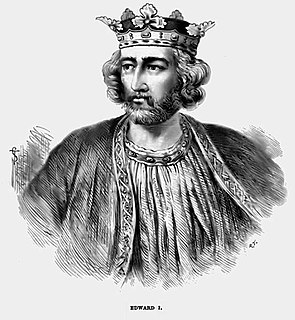 W
WEdward is an English given name. It is derived from the Anglo-Saxon form Éadƿeard, composed of the elements ead "wealth, fortune; prosperous" and ƿeard "guardian, protector".
 W
WThe given name Eric, Erich, Erikk, Erik, Erick, or Eirik is derived from the Old Norse name Eiríkr [ˈɛiˌriːkz̠].
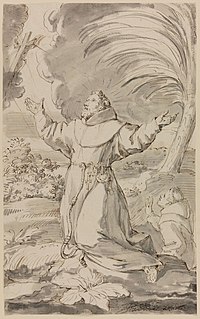 W
WFrancis is an English given name of Latin origin.
 W
WGary and Garry are English language masculine given names.
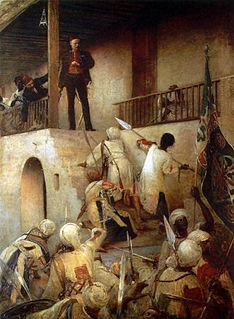 W
WGordon is a masculine given name in the English language. The name is derived from the Scottish surname Gordon. It is uncertain if this surname originated from a place name in Scotland or in France. The Gordon in Berwickshire, where the family who bore the surname held lands in the 12th century, is of uncertain etymology. It is also possible that this place name was named after settlers from France, who were named after a like-named place in Normandy. The surname is thought to have been taken up as a given name in honour of the Major-General Charles George Gordon, a British army officer who was killed in 1885, in Khartoum.
 W
WGraham is a masculine given name in the English language. According to some sources, it comes from an Old English word meaning or referring to a "grey home", or "gravel homestead". According to other sources, it comes from the surname Graham, which in turn is an Anglo-French form of the name of the town of Grantham, in Lincolnshire, England. The settlement is recorded in the 11th century Domesday Book variously as Grantham, Grandham, Granham and Graham. This place name is thought to be derived from the Old English elements grand, possibly meaning "gravel", and ham, meaning "hamlet" the English word given to small settlements of smaller size than villages. In the 12th century the surname was taken from England to Scotland by Sir William de Graham, who founded Clan Graham. Variant spellings of the forename are Grahame and Graeme. The forename Graham is considered to be an English and Scottish given name. Its origin as a surname has led to its occasional use as a female given name, as for example in the case of Graham Cockburn, a daughter of Henry Cockburn, Lord Cockburn.
 W
WHayden is a given name in the English language. The name is variant of the given name Haydn, which is derived from the surname Haydn in honour of composer Joseph Haydn (1732–1809). The surname Haydn originated as a respelling of the nickname Heiden, meaning "heathen". The name is derived from the Middle High German heiden, and from the Old High German heidano.
 W
WHenry is a masculine given name derived from Old French Henri / Henry, itself derived from the Old Frankish name Heimeric, from Common Germanic *Haimarīks. In Old High German, the name was conflated with the name Haginrich to form Heinrich.
 W
WIncrease is a male given name. It is the English language literal translation of the name Joseph, which originates from Hebrew.
 W
WJack is a given name. Since the late 20th century, Jack has become one of the most common names for boys in many English-speaking countries. It can be used as a diminutive for: John, Jacob, Jason, Jonathan, Jan, Johann, Johannes, Joachim. Its French form is Jacques, from the Latin Jacobus. Jack is also used to a lesser extent as a female given name, often as a shortened version of Jacqueline.
 W
WJames is an English language given name of Hebrew origin, most commonly used for males.
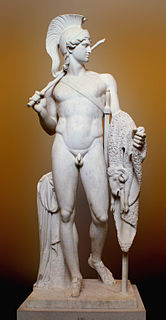 W
WJason is a common masculine given name. It comes from Greek Ἰάσων (Iásōn), meaning "healer", from the verb ἰάομαι (iáomai), "heal", "cure", cognate with Ἰασώ (Iasṓ), the goddess of healing, and ἰατρός (iatrós), "healer", "physician". Forms of related words have been attested in Greek from as far back as Mycenaen and Arcadocypriot Greek: 𐀂𐀊𐀳, i-ja-te and i-ja-te-ra-ne, respectively, both regarded as standing for inflected forms of ἰατήρ, "healer".
 W
WJimmy is a male given name. It is a diminutive form of the given name James, along with its short form, Jim. Both can also be used as the adaptation into English of the popular modern Greek name Dimitris (Δημήτρης) or the older Dimitrios (Demetrius), especially amongst Greek immigrants in English-speaking countries, due the similarity in the sound of the nickname Ντίμης/Dimi and Jimmy.
 W
WJohn is a common masculine given name in the English language of Semitic origin. The name is derived from the Latin Ioannes and Iohannes, which are forms of the Greek name Iōánnēs (Ἰωάννης), originally borne by Hellenized Jews transliterating the Hebrew name Yohanan, "Graced by Yah", or Yehohanan, "Yahweh is Gracious". There are numerous forms of the name in different languages; these were formerly often simply translated as "John" in English but are increasingly left in their native forms.
 W
WJoseph is a common masculine given name, derived from the Hebrew Yosef (יוֹסֵף). The form "Joseph" is used mostly in English, French and partially German-speaking countries. This spelling is also found as a variant in the Nordic countries. In Portuguese and Spanish, the name is "José". In Arabic, including in the Quran, the name is spelled يوسف Yūsuf. In Persian, the name is "Yousef".
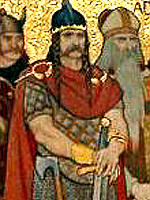 W
WKenneth is an English given name and surname. The name is an Anglicised form of two entirely different Gaelic personal names: Cainnech and Cináed. The modern Gaelic form of Cainnech is Coinneach; the name was derived from a byname meaning "handsome", "comely". A short form of Kenneth is Ken or Kenn. A pet form of Kenneth is Kenny.
 W
WLivingstone is a surname and given name. The surname is toponymic. It is one of the habitual surnames eventually adopted by members of the Scottish branch of the Irish Dunleavy /MacNulty royals, including the ancestors of the African missionary doctor and African explorer David Livingstone. There may be a relationship between the Livingstones and Clan MacLea.
 W
WLucius is a male given name derived from Lucius, one of the small group of common Latin forenames (praenomina) found in the culture of ancient Rome. Lucius derives from Latin word Lux, meaning "light", and is a cognate of the name Lucas. Another etymology proposed is a derivation from Etruscan Lauchum meaning "king", which however was transferred into Latin as Lucumo. Lucy is the feminine derivative of the name.
 W
WMark is a common male given name and is related to the Latin word Mars. It means "consecrated to the god Mars", and also may mean "God of war" or "to be warlike". Marcus was one of the three most common Roman given names.
 W
WMichael is a masculine given name derived from the Hebrew phrase מי כאל mī kāʼēl, 'Who [is] like-El', in Aramaic: ܡܝܟܐܝܠ. The theophoric name is a rhetorical question – "Who [is] like [the Hebrew God] El?", whose answer is "there is none like El", or "there is none as famous and powerful as God." This question is known in Latin as Quis ut Deus?. Although sometimes considered erroneous, an alternative spelling of the name is Micheal.
 W
WNicholas, Nickolas, Nikolas, Nikolaus or Nicolas is a male given name; Nicholas is also used as a surname.
 W
WOscar or Oskar is a masculine given name.
 W
WPaul is a common masculine given name in countries and ethnicities with a Christian heritage and, beyond Europe, in Christian religious communities throughout the world. Paul – or its variations – can be a given name or surname.
 W
WPhilip is a male given name, derived from the Greek Φίλιππος, from a compound of φίλος and ἵππος. Prominent Philips who popularized the name include kings of Macedonia and one of the apostles of early Christianity.
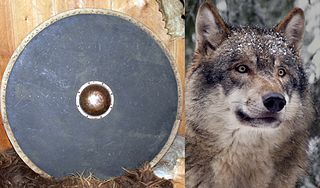 W
WRandall is a masculine given name in English and German. Its modern use as a given name originates from the transferred use of the English–language surname Randall, which in turn is derived from Randolph.
 W
WRandall is a masculine given name in English and German. Its modern use as a given name originates from the transferred use of the English–language surname Randall, which in turn is derived from Randolph.
 W
WRandolph is a masculine given name in the English language. The name is derived from the Old Norse Rannúlfr which is composed of two elements: "shield" or "rim" + "wolf". Cognates of the name include Randolf, Randulph, and Wandolfin. A pet form of Randolf is Randy.
 W
WRandolph is a masculine given name in the English language. The name is derived from the Old Norse Rannúlfr which is composed of two elements: "shield" or "rim" + "wolf". Cognates of the name include Randolf, Randulph, and Wandolfin. A pet form of Randolf is Randy.
 W
WThe name Robert is an ancient Germanic given name, from Proto-Germanic *Hrōþi- "fame" and *berhta- "bright" (Hrōþiberhtaz). Compare Old Dutch Robrecht and Old High German Hrodebert. It is the second most frequently used given name of ancient Germanic origin. It is also in use as a surname. Another commonly used form of the name is Rupert.
 W
WRobin is a masculine given name, feminine given name, and a surname. It was originally a diminutive masculine given name or nickname of Robert, derived from the prefix Ro-, and the suffix -in. In Europe, although it is sometimes regarded as a feminine name, it is generally given to boys. In 2014, 88% of babies named Robin in England were boys. In United States, it used to be more popular as a feminine name—during the 1990s, for example, it was the 325th most popular name for girls and the 693rd most popular name for boys. However the gap has been narrowing and recently the number of baby boys and baby girls named Robin in United States has been roughly similar. In 2014 46% of babies named Robin in United States were boys, which is about three times that figure in 1990.
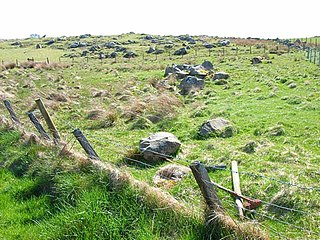 W
WStanley is a toponymic surname dating from the 11/12th century contraction of Stan and Leigh (meadow), later also being used as a masculine given name.
 W
WStephen or Steven is a common English first name. It is particularly significant to Christians, as it belonged to Saint Stephen, an early disciple and deacon who, according to the Book of Acts, was stoned to death; he is widely regarded as the first martyr of the Christian Church. The name "Stephen" is derived from Greek Στέφανος, a first name from the Greek word στέφανος, meaning 'wreath, crown' and by extension 'reward, honor, renown, fame', from the verb στέφειν, 'to encircle, to wreathe'. In Ancient Greece, crowning wreaths were given to the winners of contests. Originally, as the verb suggests, the noun had a more general meaning of any "circle"—including a circle of people, a circling wall around a city, and, in its earliest recorded use, the circle of a fight, which is found in the Iliad of Homer.
 W
WThe name Thomas is derived from the Aramaic personal name תאומא, meaning 'twin,' and the English spelling "Thomas" is a transliteration of the approximate Greek transliteration, Θωμάς. Thomas is recorded in the Greek New Testament as the name of Thomas the Apostle.
 W
WWilliam is a male given name of Germanic origin. It became very popular in the English language after the Norman conquest of England in 1066, and remained so throughout the Middle Ages and into the modern era. It is sometimes abbreviated "Wm." Shortened familiar versions in English include Will, Willy, Willie, Bill, and Billy. A common Irish form is Liam. Scottish diminutives include Wull, Willie or Wullie. Female forms are Willa, Willemina, Willamette, Wilma and Wilhelmina.
 W
WZachary is a male given name, a variant of Zechariah – the name of several Biblical characters.